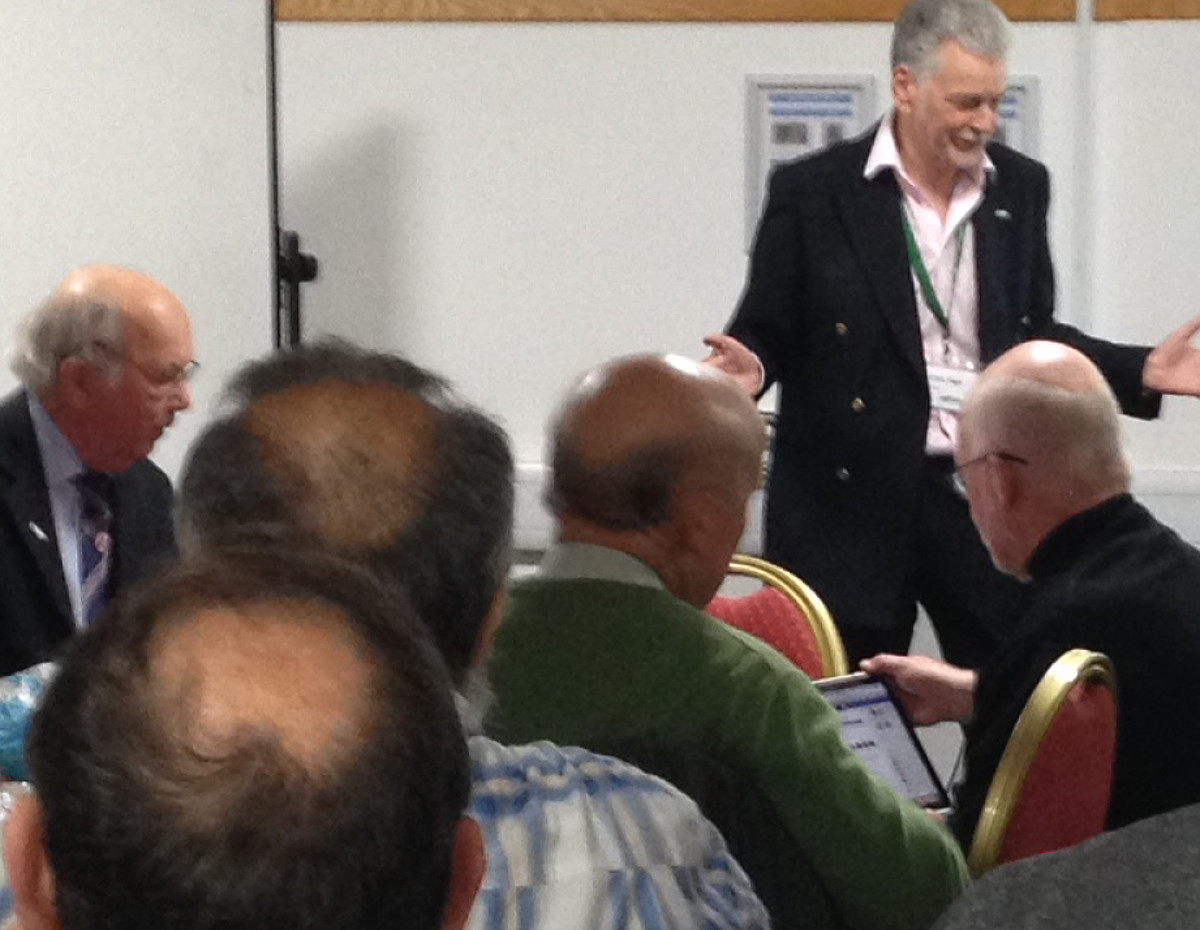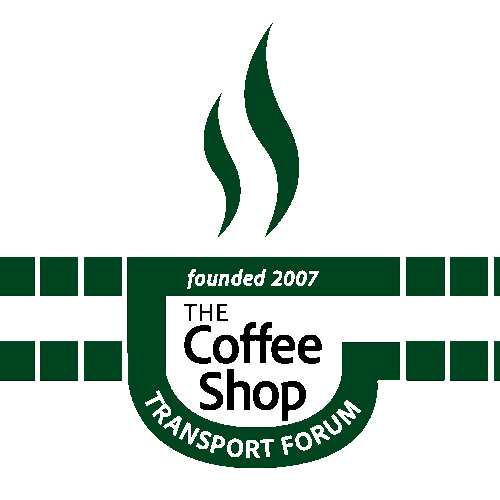| Re: OTD - 9th January (2004) - incorporation of Railfuture Posted by eXPassenger at 13:22, 10th January 2022 |     |
Your comment about the ageing of the membership and lack of new faces applies in many areas today.
| Re: OTD - 9th January (2004) - incorporation of Railfuture Posted by grahame at 19:59, 9th January 2022 |     |
David Harby writes (public comment, Facebook, copied here with his permission)
A fuller explanation.
RDS was an unincorporated organisation which meant that all members of the National Executive had personal financial liability for claims against the organisation. The relationship between branches and the national organisation was also a grey area so it was possible branch committee members also had personal financial liability for their decisions. Converting to a limited company removed that personal financial risk.
Nowadays most groups, such as CRP's are Community Interest Companies but that option was not available at that time.
RDS was an unincorporated organisation which meant that all members of the National Executive had personal financial liability for claims against the organisation. The relationship between branches and the national organisation was also a grey area so it was possible branch committee members also had personal financial liability for their decisions. Converting to a limited company removed that personal financial risk.
Nowadays most groups, such as CRP's are Community Interest Companies but that option was not available at that time.
Thank you, David. For that year I was a director, I was aware of the "Limited Company" liability I had and, yes, it makes sense for the volunteers who take on those roles.
| Re: OTD - 9th January (2004) - incorporation of Railfuture Posted by grahame at 11:08, 9th January 2022 |     |
I should probably summarise:
* RailFuture has an excellent history and success that should be celebrated, but it needs to embrace the future for its organisational and member services agenda.
* There is excellent ongoing work behind the national scenes, and with publicity and keeping traditional members informed in what is an important area that few address.
* The branch network is patchy to say the least, and there is a time bomb in membership numbers. There is a window of opportunity which I have seen acknowledged, but frustrated by the old system and guard
* The need for independent community co-ordination of public transport at we go forward post (or in the next phase of) Covid, and also considering changed social travel patterns and sustainability and carbon zero aspects is, perhaps, greater than it ever was before.
| Re: OTD - 9th January (2004) - incorporation of Railfuture Posted by grahame at 10:38, 9th January 2022 |     |
My personal Railfuture story
I joined Railfuture around a dozen years ago. As a new campaigner at the end of the naughtys, I was keen to meet up with other campaigners in the region every few months, and nationally a couple of times a year to learn from further afield; newsletters in the post from branch and national level made the "package" worthwhile, and the cost was insignificant to me. There were (and are) a lot of enthusiasts about who'll tell you every stock number and every detail of differences and liveries to its stable mates, and there are quite a few who will promote the existing lines and services in their area - helping get bums on seats. But there are far fewer who look ahead not by 2 years but by five, ten or more, and who take a far more regional or national level rather than a single line or station - and it's those "far fewer" who look at further ahead. Ironically so many of them seem to be the older (and so more experienced) people who are the ones who are least likely to live to see the outcomes they exhort.
Branch Committee
Railfuture has a membership category for "associative member groups". There are perhaps half a dozen of these in Severnside, and one of the actions I suggested to the TransWilts CRP, where I was a founding director and the Community Rail Officer was to join. It gave TransWilts the ability to have a membership logo on appropriate publicity, and Railfuture (Severnside) to list us as members - a mutually advantageous arrangement that helped open door and for us to further mutually compatible aims. It also gave us (though me) a place on the branch committee.
Sadly, in the Summer of 2018, the TransWilts board was concerned at what their chair considered a conflict of interest between my TransWilts role and this forum, and I had to chose between the two. It was rather an easy choice - my Community Rail Officer role was being made unpleasant and impractically bureaucratic, and I love the members and the rest of the team here on the Coffee Shop - a real pleasure to work for and with you. But leaving TransWilts did leave me with a couple of days a week "spare".
With my departure from TransWilts, my place on the local branch committee went to the new CRO in April 2019, and a decision by the branch chair to only call for officers (chair, vice, secretary, treasurer and publicity) and representatives of each associate group means that there's no longer a place there for any ordinary committee members. I confess that took me by surprise, but I have plenty else to do at MTUG, Option 24/7, TWSW, WWRUG and here on the Coffee Shop, as well as on my local town council. Again, happy to work with the branch - two meetings in October and another planned for March, with a national webinar next Wednesday and an AGM in Bristol in July, national in Leeds in September. And excellent printed "Railwatch" every couple of months, with "Railfuture Express" available as a .pdf each month.
National Board
Railfuture had - and still has (all in my opinion) some brilliant people, but also some areas with very real problems. And some of those areas were both acknowledged and things I had come across and helped sort at TransWilts, Melksham Rail Development Group, and in my proper jobs at Well House Consultants and running Well House Manor. So, approached, I stood for the national board. Now - I understood the time line of the election and went in with that understanding but, goodness, it was long. From initial discussions in November 2018 through a period of purdah where I could not contact members except to answer questions on an individual basis ("would be unfair to use the internet when some other candidates don't") and then a postal voting period, votes, returned and counted and - at last - results announced at the AGM in Cardiff in mid May 2019. It astonished me that five of us were mad enough to stand for 3 places (for 3 years) and 1 place for a single year to take the seat of a director who had resigned.
All the other four were well known / previous incumbents or strong on committees and well known to the pen-and-paper voting member who made the choice. No surprise, then, that the three top 3 year slots went to three of them. I was elected, after a six month process, for just a single year, with the prospect of starting the whole darned process again in less than six months. But, OK, I knew what I had signed up for.
What I did not know ahead of time was what life on the board would be like. That the meetings would be taken up with various disciplinary actions as the board tried to control what its members and branches did and said attached to the Railfuture name. That so little value was given to volunteer director's time that we were required to travel on / only claim for the cheapest advance ticket prior to and after a board meeting - even if it would have meant spending 9 hours at destination for a 2 hour meeting. That they knew they needed help, but weren't open to relaxing control enough to accept suggestions. That carefully prepared presentations and sessions for the branches day were cut on the day, with an instruction from the chair after I had started from an hour to 15 minutes (and 30 minutes cut to 5 for a proposal to the board). I very much got the message that I was useful on the board as I had taken the place of one of the awkward squad, who's chucking out was concluded at the first board meeting I attended. Had my session at the November branches meeting not been torpedoed, I could probably have ben persuaded to try for a three year term, but I came home dispirited again that night and confirmed to Lisa it had been a mistake to go on the board - the what and how was frustrating rather than enjoyable for me personally, and I'm not short of other things to do. If you are a Railfuture member reading this, let me assure you that you have some brilliant people there - and they could be so much more effective with some pragmatic modernisation. I remain, and will remain, a supportive member.
Where is Railfuture today?
So that's been written as a personal story. There is much good in Railfuture. Look at the first two pictures from the AGM and you'll see a Railfuture award being presented - and what a welcome way they are of encouraging campaigns and gaining publicity. And you'll see all the wisdom of the room looking forward to the really important long term strategy - something which no other community organisation does to anything like the same degree.
There are also issues remaining. The third image shows Railfuture spending (too much) time looking at itself but not bold enough to try (and invest from the substantial buffer fund it has) in modern communications and systems - they ARE coming but oh so slowly. And the net result is that the average age of members keeps on going up, and more fall off the top than come on at the bottom, and that needs to change if the organisation's central structure is to survive and thrive. It typical - as seen in my picture - to see nothin but a sea of bald white heads in from of you when you sit in a Railfuture meeting, and that's a massive contrast to the sort of people you'll see on a typical train journey.
Many branches are dangerously thin with active membership (and I include myself) progressively older and more off-piste and dangerously forthright with their views. Covid has wrecked live meeting programs which were patchy anyway, and suggestions of combining branches have been met with cries of "too far to travel to meetings" rather than "it would make regional sense". On line meetings have been notable by their absence - the perceived necessity in these parts has been to cater for existing members at everything, rather than adding new.
Our local branch committee is still the one put into place 3 years ago and like the long parliament in Stuart times has become unrepresentative and a "rump". One officer has passed away, one left, one been seriously ill with Covid and one has very limited time indeed with bus interests. Associate committee members are rarely if ever involved at a Railfuture level as their main allegiance is correctly to their own group. It's such a rump that the next AGM is being planned for late spring - and largely by other local members with the tacit approval of the few formally remaining active and technically on the current committee. It remains to be seen if it works locally, and if it doesn't, does that actually matter?
Railfuture had built up a war chest of funds over the years, and still spent well within its budget - not keen on investing even when it might have made sense - so it's coming out of Covid financially strong, but worried about whether it can survive in ten years time. Im my opinion it's still very much got a national place - it lives on its name and reputation and the excellent work done by a few, but claiming to be a big grassroots national body is hollow.
The original "Reinvigoration of Unremunerative Branch Lines" mantle was passed on to Community Rail long ago, and that stayed strong with ACoRP to the extent that they largely worked themselves out of a job and have also moved on. But there is now a case for supporting from the community of not just the minor lines but also regional and even national routes. The "bigger and better railway" tagline needs - in my view - revision as we fight to maintain even the current size let alone have growth.
| OTD - 9th January (2004) - incorporation of Railfuture Posted by grahame at 23:45, 8th January 2022 |     |
The Chronology
Thread 1:
The Society for the Reinvigoration of Unremunerative Branch Lines (SRUBL) was founded in 1951.
That was shortened to the Railway Invigorisation Society (RIS) a few years later - 1962?
Thread 2:
The Railway Development Assocoation (RDA) was founded in the early 1950s
Together:
The RIA an RDA merged in 1978 to form the Railway Development Society (RDS)
The RDS adopted the current campaigning name - Railfuture - in 2000
Railfuture Ltd was created on 6th August 2001 to protect the name
Railway Development Society was unincorporated until 2004
As an incorporated company:
Railway Development Society Ltd was incorporated on 9th January 2004
Following the unincorporated RDS AGM on 8th May 2004, its assets were transferred to the Ltd Co.
Railfuture Ltd (the non-trading company) was renamed (to RDS 2018 Ltd) on 1st February 2018
Railway Development Society Ltd was then renamed to Railfuture Ltd
RDS 2018 Ltd was disolved on 26th February 2019
So the current setup:
It's a company limited by guarantee. It is run by a board of nine elected honorary (volunteer) directors who are elected for terms of three years each (three elected per year) by the paid up voting membership. They do it who do it for the love not for any money. Specialist groups looking after national subjects and Regional branches which are largely autonomous cover Great Britain.
Railfuture Ltd is not a charity and is unable to benefit from Gift Aid.
Railfuture is not exempt from any tax liabilities (such as inheritance tax) when a legacy is received
Railfuture is not a CIC (Community Interest Company) though in some ways it behaves as one.
Railfuture is not financially supported by any rail industry, government, political or press group.
Much of the above from reading and combining sources - corrections and comments welcome.
And how it works these days
Ah - now that's a follow up story which I will tell personally, tomorrow.
Here is a short newsreel from Cardiff in May, 2019, at the Railfuture AGM.
1. & 2.


3. & 4.












